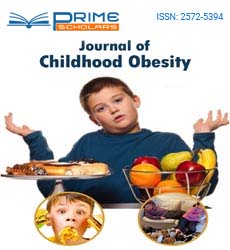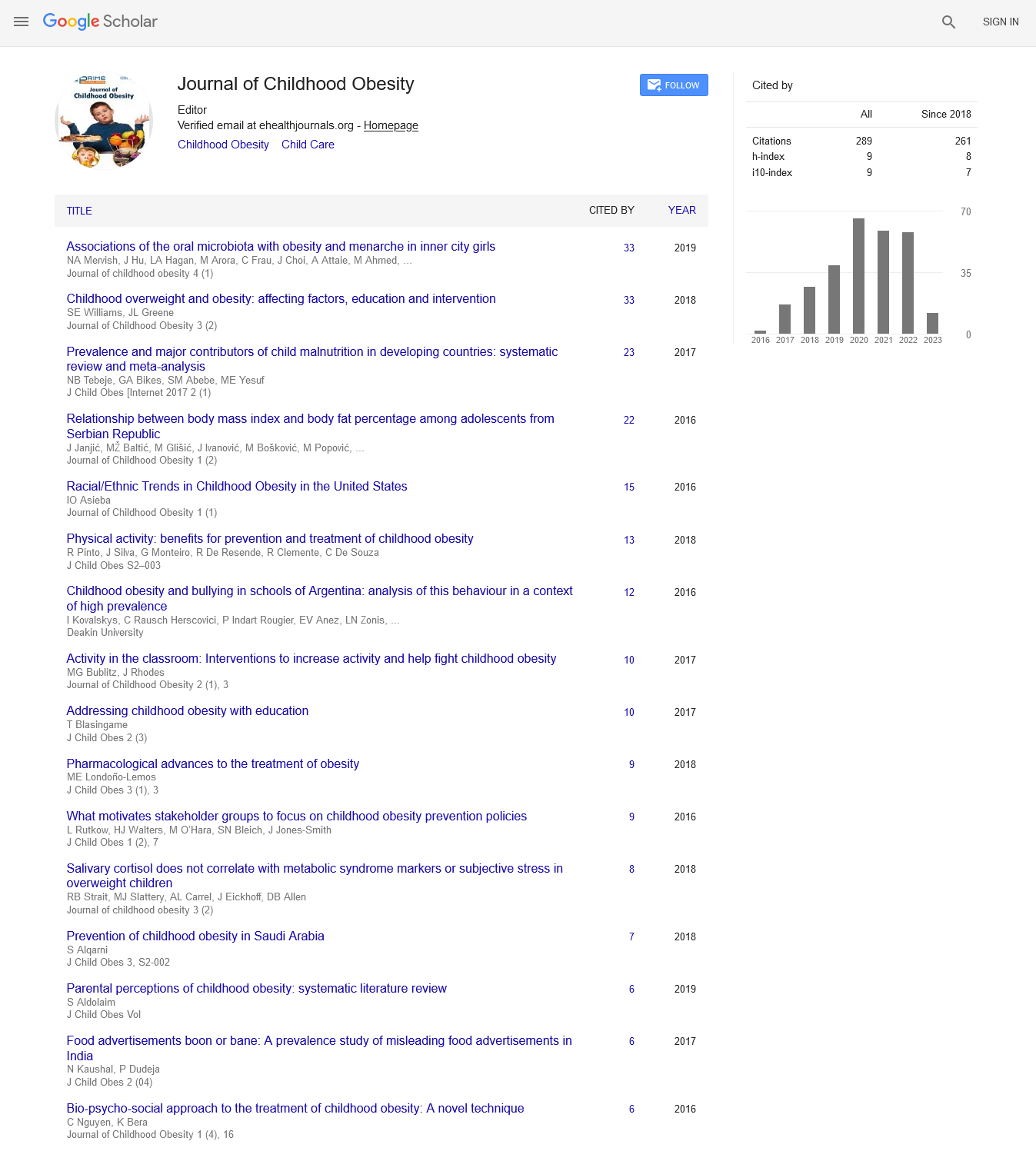Editorial - (2021) Volume 6, Issue 1
Parenting advice on child obesity During the COVID-19 Pandemic: An Editorial
Janet K*
Department of School of Health Sciences, university of medical sciences, china
- Corresponding Author:
- Janet K
Department of School of Health Sciences
university of medical sciences, china
E-mail: janet@med.edu.cn
Received Date: January 08, 2021; Accepted Date: January 17, 2021; Published Date: January 24, 2021
Citation: Janet K. Parenting advice on child obesity During the COVID-19 Pandemic : an editorial. J Child Obes 2021, 6:1. doi:10.21767/2572-5394.6.1.36
Copyright: © 2021 Janet K. This is an open-access article distributed under the terms of the Creative Commons Attribution License, which permits unrestricted use, distribution, and reproduction in any medium, provided the original author and source are credited.
Abstract
Globally, the coronavirus disease 2019 pandemic has adversely affected many
people's mental health, including pregnant women and clinicians who provide
maternity care, and threatens to develop into a mental health pandemic.
Trauma-informed care is a framework that takes into account the effect that
past trauma can have on current behavior and the ability to cope and can help
to minimize retraumatization during health care encounters. The purpose of this
article is to highlight the pressing need for perinatal clinicians, including nurses,
midwives, physicians, doulas, nurse leaders, and nurse administrators, to be
educated about the principles of trauma-informed care so that they can support
the mental health of pregnant women, themselves.
Keywords
corona virus; trauma; mental health
Parenting advice on childhood obesity
The full physiologic impact of the severe acute respiratory
syndrome coronavirus 2 and coronavirus disease 2019 (COVID-
19) on pregnant women and their infants is not yet clear.
However, evidence of the disproportionate effect of the virus is
emerging. Pregnant women who are Black or Hispanic have
higher seroprevalence rates than pregnant women who are White
(Flannery et al., 2020). Pregnant women with the virus are more
likely to be hospitalized and require intensive care treatment,
including mechanical ventilation, than women who have the virus
but are not pregnant (Ellington et al., 2020). Although pregnant
women may worry about their own health and the health of their
fetuses during pregnancy, strict public health measures that have
been taken to reduce the spread of the virus, including social
distancing and home isolation, have cut women off from some of
their usual social supports (Thapa et al., 2020). Stress related to preparation for birth during the pandemic
and worries about COVID-19 infection for themselves and their
newborns can elevate women’s risk of experiencing moderate or severe
anxiety over and above sociodemographic, obstetric, and other relevant
health factors including among pregnant women (Choi et al., 2020, Choi
et al., 2020). Concern about an impending mental health pandemic
creates an imperative for perinatal clinicians to use trauma-informed
care (TIC) to support the mental health of pregnant women. Using TIC
may best be done by educating perinatal clinicians to assess and assist
pregnant women with their psychosocial concerns in settings where they
deliver perinatal care we highlight the pressing need for perinatal
clinicians, including nurses, midwives, physicians, doulas, nurse
leaders, and nurse administrators, to be educated about the principles of
TIC so that they can support the mental health of pregnant women,
themselves, and members of the care team during the pandemic.

